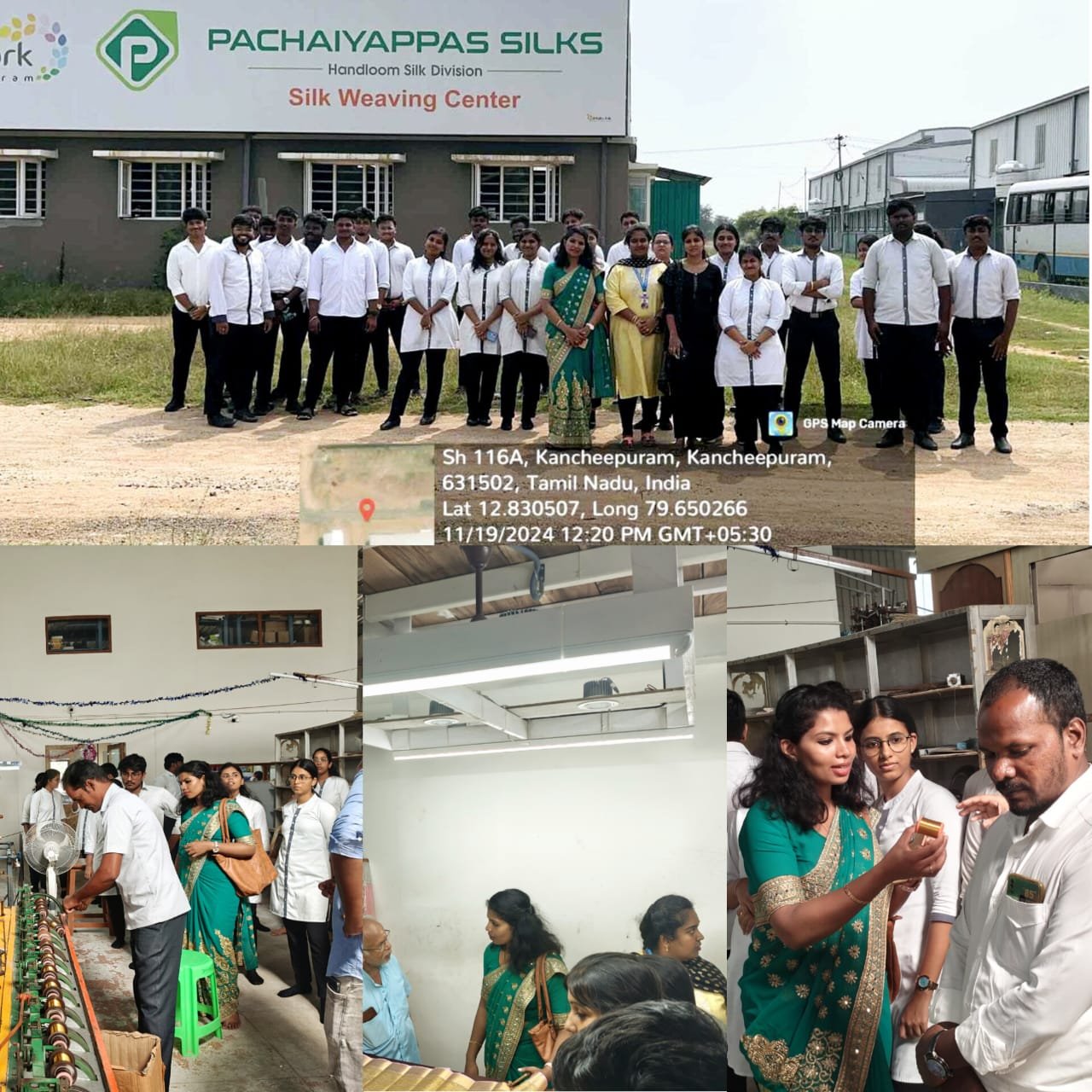Industrial Visit @ Peraringar Anna Handloom Silk Park, Kanchipuram
On 19th November 2024, a group of 30 students visited Peraringar Anna Handloom Silk Park, Kanchipuram, under the guidance of Dr. Prof. Asha Sundaram, Principal, and Dr. Anju Mohan, Head of the Department (Intellectual Property Rights). The program was organized by Mrs. Sruthy Murugan Usha, Assistant Professor, and coordinated by Mrs. Vidhya Sri, Assistant Professor and Head of the Department (Business Law).
The visit provided an enriching and insightful experience into the world of traditional handloom weaving, particularly the famed Kanchipuram silk sarees, which hold a prestigious Geographical Indication (GI) tag. Students gained first-hand exposure to the rich cultural heritage associated with these silk sarees, renowned for their intricate designs, vibrant colors, and durability.
During the visit, students interacted with skilled weavers, who demonstrated the intricate process of weaving using traditional handlooms. They explored the various stages of saree production, including yarn preparation and zari weaving, which employs gold and silver threads to create elaborate patterns. The weaving units showcased the harmonious blend of traditional craftsmanship with modern techniques, highlighting innovations aimed at improving efficiency while preserving the art's authenticity.
The visit also emphasized the significance of Geographical Indications (GI) in safeguarding the identity of such traditional crafts. Students learned how GI protection not only preserves the authenticity and heritage of Kanchipuram silk sarees but also provides legal protection against counterfeiting, ensuring fair trade practices. Insights into the economic benefits of GI for rural artisans, along with its impact on empowering local communities, were discussed Moreover, the students were sensitized to the challenges faced by handloom weavers, such as increasing production costs, competition from power looms, and declining interest among the younger generation. The role of government initiatives and support, including subsidies, training programs, and marketing assistance, in sustaining the handloom industry was highlighted.
The visit also served as an eye-opener to the global appeal of Kanchipuram silk, underscoring its role in promoting India’s cultural heritage on international platforms. Students left with a deeper appreciation of the handloom sector’s contribution to the cultural, economic, and social fabric of India. This educational experience was a unique opportunity for the students to connect classroom knowledge of Intellectual Property Rights (IPR) and International Trade law with real-world applications, fostering a greater understanding of how such frameworks protect and promote traditional industries.

